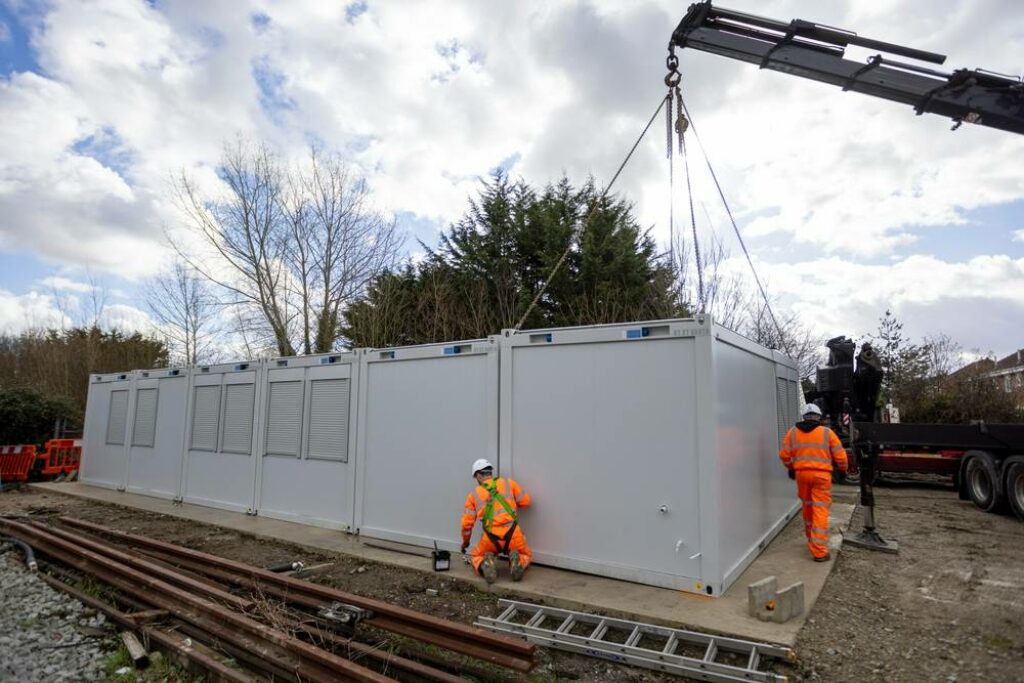
Crane Operator Training
As you walk or drive through a built-up city, do you marvel at all the tall, magnificent buildings passing by? They may not wear capes or have superhuman powers, but crane operators are the heroes behind those impressive skyscrapers.
Related Topics (Sponsored Ads):
Crane operators play a pivotal role in the construction and industrial sectors, responsible for the safe and efficient operation of cranes to lift, move, and place heavy materials. Their primary duties include interpreting load charts, conducting pre-operation safety checks, and coordinating with ground personnel to ensure that lifting operations are executed safely.
They typically work on construction sites, manufacturing plants, and infrastructure projects, where they handle various types of cranes, including mobile, tower, and overhead cranes. The importance of crane operators cannot be overstated; they are essential for the successful completion of large-scale projects, ensuring that materials are moved precisely and safely.

Tasks and Responsibilities
The daily responsibilities of a crane operator encompass a range of tasks that require both technical knowledge and practical skills. Operators must conduct thorough safety inspections of their equipment before each shift, ensuring that all systems are functioning correctly and that safety devices are operational. They are also responsible for calculating load weights and determining the appropriate rigging methods to ensure safe lifting practices. This requires a deep understanding of load dynamics, rigging procedures, and the specific capabilities of the crane being operated.
Moreover, crane operators must maintain constant communication with signal persons and other crew members to coordinate movements and ensure safety protocols are followed. The role is inherently safety-critical; operators must remain vigilant, make quick decisions, and effectively mitigate risks during operations. This combination of technical expertise and situational awareness is vital for preventing accidents and ensuring the safety of all personnel on site.
Three Best Ways to Get Trained as a Crane Operator
Becoming a certified crane operator typically involves one of the following three primary training paths – apprenticeships, vocational programs, and on-the-job training.
1. Apprenticeships: This route combines classroom instruction with hands-on training under the supervision of experienced operators. Apprenticeships usually last between three to four years and culminate in certification. The benefits include comprehensive training and the opportunity to earn while learning. However, the commitment can be significant, and finding an apprenticeship program may be competitive.
2. Vocational Programs: Many technical schools and community colleges offer crane operator training programs that last from a few weeks to several months. These programs often include both theoretical coursework and practical training. Costs can vary widely, typically ranging from a few thousand dollars to over ten thousand, depending on the institution and program length. Graduates receive a certificate, which can enhance employability, but they may still need to gain experience before being fully qualified.
3. On-the-Job Training: Some employers provide training for new hires, allowing them to learn while working. This method can be less formal and may not always lead to certification unless the employer is accredited. While this option can be cost-effective, it may not provide the same depth of knowledge as structured programs.
Pros of Being a Crane Operator
Working as a crane operator comes with numerous advantages. One of the most significant benefits is job stability; skilled crane operators are in high demand across various industries, including construction, manufacturing, and logistics. This demand often translates into competitive wages, with many operators earning a substantial income, especially those who specialize in complex crane operations.
Additionally, crane operators experience a sense of accomplishment from operating heavy machinery and contributing to large-scale projects. The role offers opportunities for career advancement, with many operators moving into supervisory or specialized positions, such as crane inspectors or safety coordinators. Furthermore, the field allows for specialization in various crane types and operations, providing operators with the chance to diversify their skills and increase their marketability.
Cons and Challenges
Despite the many benefits, the role of a crane operator also presents challenges. The physical demands of the job can be significant, requiring operators to work in various weather conditions and sometimes at great heights. Safety risks are inherent in crane operation, necessitating a strong commitment to safety protocols and ongoing training to stay current with industry standards and regulations.
Moreover, crane operators may face irregular work schedules, including nights and weekends, depending on project timelines. The need for continuous education and certification maintenance can also be a burden, as operators must regularly update their skills and knowledge to comply with evolving safety standards. To manage these challenges, operators should prioritize physical fitness, engage in ongoing training, and maintain a strong focus on safety practices.
Suitability and Fit
The crane operator profession requires specific personal qualities and skills. Ideal candidates should possess excellent hand-eye coordination, spatial awareness, and strong problem-solving abilities. Attention to detail is crucial, as operators must accurately assess load weights, rigging methods, and site conditions to ensure safe operations.
Individuals considering this career should evaluate their own suitability by reflecting on their comfort with heavy machinery, ability to work under pressure, and willingness to engage in continuous learning. Those who thrive in dynamic environments and enjoy hands-on work may find the crane operator role particularly rewarding.
Tips for Choosing a Crane Operator Training Program
Selecting the right training program is critical for aspiring crane operators. Key factors to consider include accreditation, which ensures that the program meets industry standards and is recognized by employers. Additionally, the qualifications and experience of instructors can significantly impact the quality of training received.
Prospective students should seek programs that offer a comprehensive curriculum, including both theoretical knowledge and hands-on experience. Job placement assistance can also be a valuable resource for newly certified operators, helping them navigate the job market effectively. Lastly, researching various training options and reading reviews from former students can provide insights into the program’s effectiveness and relevance to industry needs.




